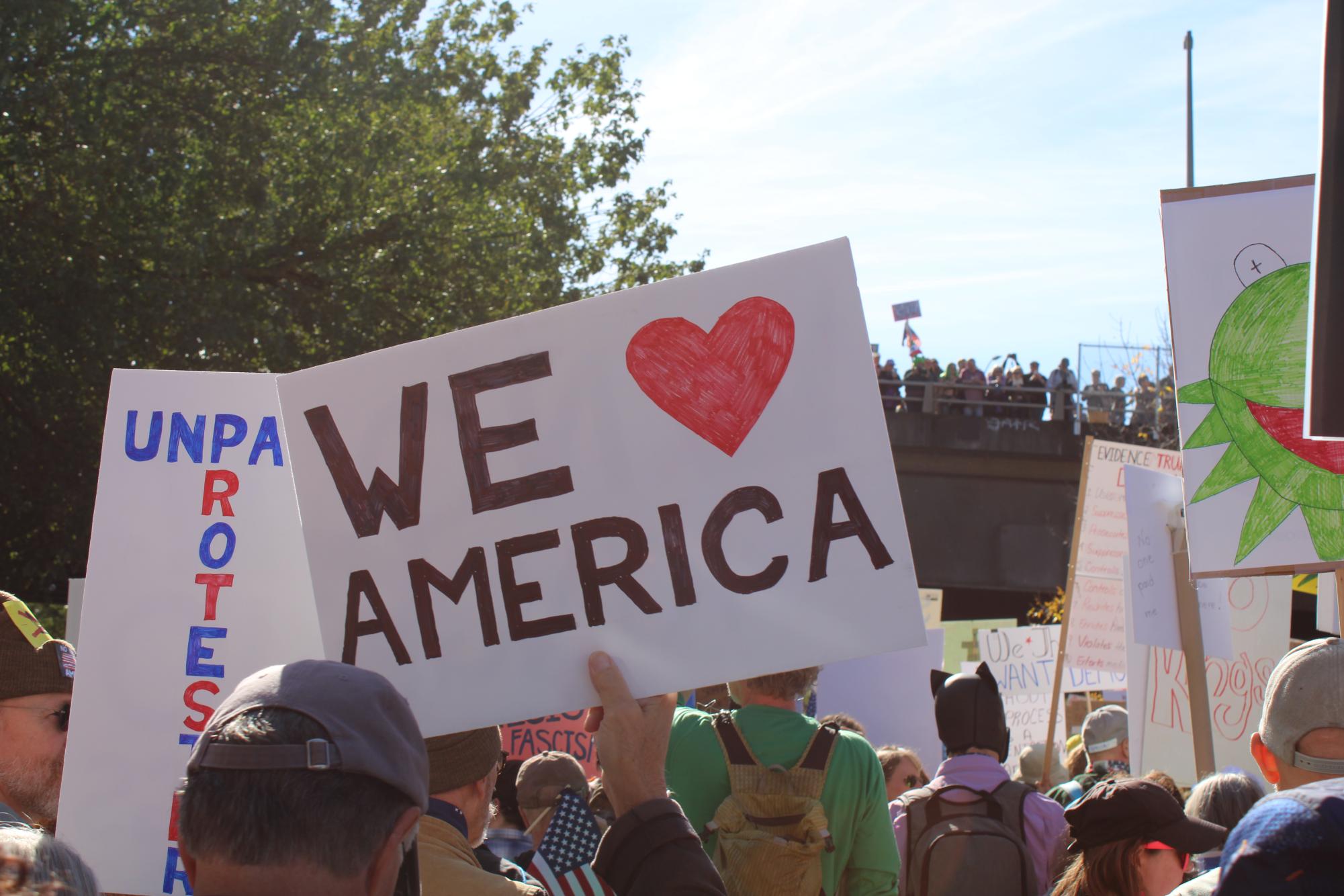It’s true, Portland isn’t perfect, but deploying the Oregon National Guard will not help us. We attend high school in downtown Portland every day; it isn’t a conflict-ridden place. We feel comfortable going off campus for lunch and spending time in downtown neighborhoods after school.
Some things we appreciate about Portland: the Timbers and Thorns, food, people’s open-mindedness, the access to nature and the quiet that comes with it, people’s creativity, Voodoo Doughnuts, the thrifting culture, just to name a few.
We also appreciate that Portland is a sanctuary city, and states on the city website that it is “committed to protecting and supporting the immigrants who contribute so much to the health, prosperity, and vibrancy.”
Due to Portland’s status as a sanctuary city and history of social justice protests, President Trump is targeting it. Trump is threatening to deploy the National Guard as he emphasizes it as critical to ending what he views as “violence” in Portland. He is confusing Americans’ First Amendment right to protest, in this case against ICE, with violence, but they are not the same thing.
In response to Trump’s attempt at troop deployment, Governor Tina Kotek and Mayor Keith Wilson stated that Oregon does not need or want the National Guard deployed.
Time Magazine recently published an editorial by Wilson, regarding how President Trump is painting a “hellish” picture of Portland to justify deploying troops.
“We must recognize that the American consensus on Portland was purposefully broken, and it’s hurting our city,” wrote Wilson. “That perception was shattered by the 24-hour ecosystem of divisive clips, some new, most from a half-decade ago, all intended to feed anger and division. This ugly ecosystem cannot build togetherness, and it cannot serve the shared interests of our nation; it can only hold us back.”
The state of Oregon and Portland have opted to fight the deployment in court. Portland’s government website has a page on the deployment of federal troops. According to the page, “The City of Portland and the State of Oregon are fighting the order [to deploy troops] in court. Oregon Attorney General Dan Rayfield said the deployment was ‘not acceptable’ and did not meet the legal requirements.”
On Monday, October 20, when this Cardinal Times issue went to print, a ruling by the US Court of Appeals for the Ninth Circuit lifted a temporary block on the deployment of the National Guard. For up-to-date information, refer to Portland’s government website on the deployment.
It is the opinion of the Cardinal Times Editorial Board that the deployment of the National Guard will do more harm than good in addressing Portland’s needs.
The National Guard has been utilized in history to combat protests from Kent State University in 1970, to the Black Lives Matter protests across the country in 2020. These deployments only served to escalate conflicts further.
The deployment of the National Guard to Portland would have the same result. There are already protests springing up in Portland in response to threats of the National Guard being sent to Portland, such as the No Kings Protests and Portland’s World Naked Bike Ride.
Additionally, deploying the National Guard requires excessive resources and taxpayer money. The government of California stated that the deployment of the National Guard to Los Angeles cost $120 million in taxpayer money.
Instead of spending hundreds of millions of dollars on deploying the National Guard to Portland, this funding could instead be used to fix some of the problems that Portland actually faces.
The Willamette Week, a Portland-based newspaper, compiled a list of 47 ways the National Guard could help Portland. Some of the suggestions were comedic, such as putting on a laser light show, but the biggest takeaway from this article is that the National Guard does not truly belong in Portland.
As students who experience Portland every day, there are issues here, but they are not the ones Trump or the National Guard are trying to address.
Instead, if the federal government wants to aid Portland, it should focus on existing problems, including but not limited to a lack of housing, limited mental health resources, and maintaining the parks in our city.

